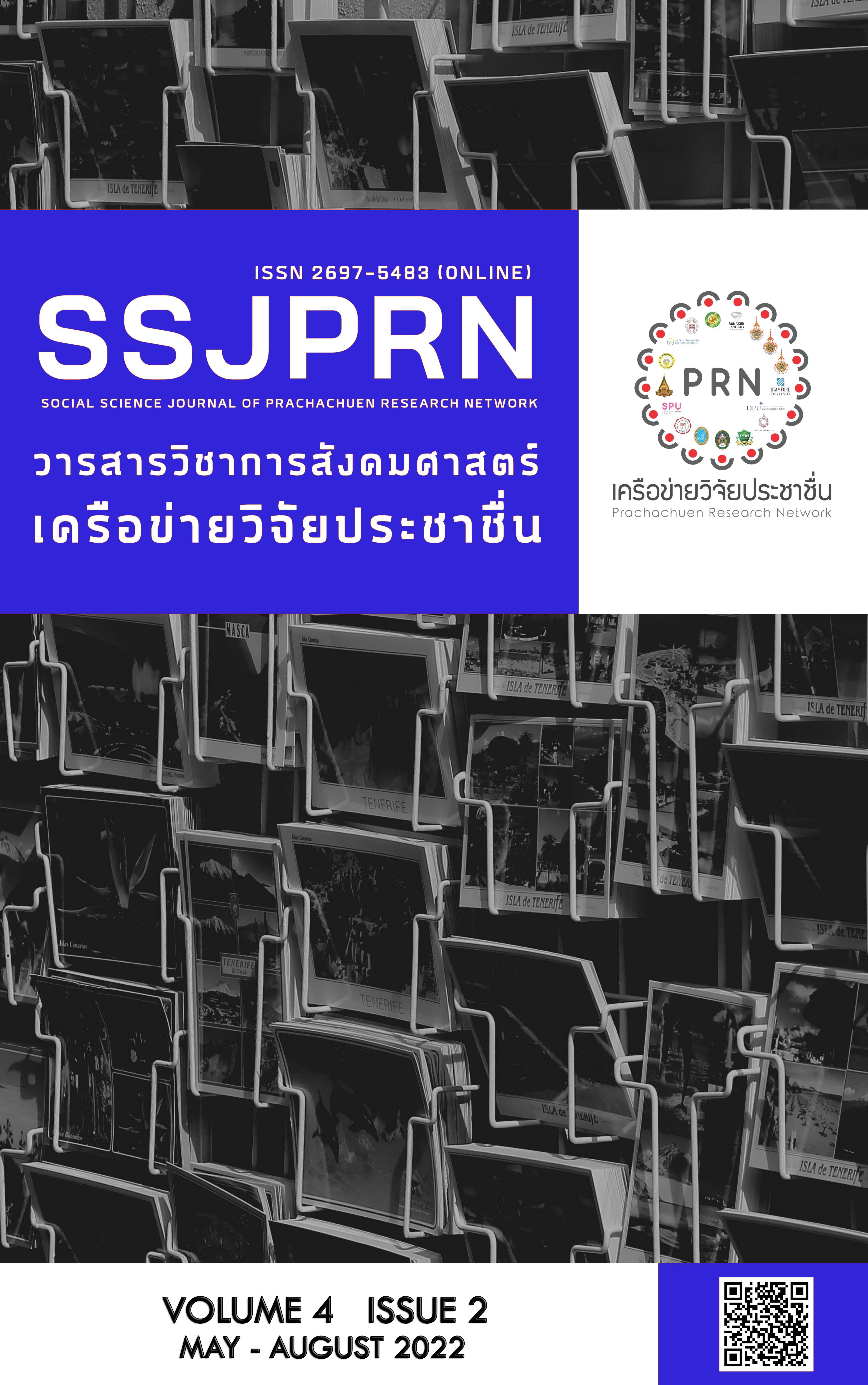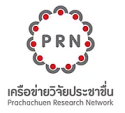ผลกระทบจากการลงทุนโดยต่างชาติต่อระบบนิเวศและทัศนคติผู้ประกอบการ ในท้องถิ่นเขตพัฒนาพิเศษภาคตะวันออก
คำสำคัญ:
การลงทุนทางตรงโดยต่างชาติ , ทัศนคติ, ระบบนิเวศ , คุณลักษณะผู้ประกอบการบทคัดย่อ
การวิจัยครั้งนี้ มีวัตถุประสงค์เพื่อ 1) ศึกษาการลงทุนทางตรงโดยต่างชาติที่ส่งผลต่อระบบนิเวศผู้ประกอบการ 2) ศึกษาการลงทุนทางตรงโดยต่างชาติที่ส่งผลต่อทัศนคติผู้ประกอบการ และ 3) ศึกษาระบบนิเวศผู้ประกอบการที่ส่งผลต่อทัศนคติผู้ประกอบการในท้องถิ่นเขตพัฒนาพิเศษภาคตะวันออก เป็นการวิจัยเชิงปริมาณ โดยใช้แบบสอบถามแบบปลายปิด ใช้วิธีการสุ่มแบบโควตา จากผู้ประกอบการธุรกิจรายเล็กและรายย่อยภายในพื้นที่เขตพัฒนาพิเศษภาคตะวันออก 3 จังหวัด คือ ระยอง ชลบุรี และฉะเชิงเทรา ผลการวิจัยพบว่า 1) การลงทุนโดยต่างชาติส่งผลกระทบโดยตรงต่อระบบนิเวศผู้ประกอบการในเชิงบวก ได้แก่ ด้านการเพิ่มพูนองค์ความรู้ภายในประเทศ ความสามารถต่อการเกื้อหนุนทางธุรกิจต่อผู้ประกอบการ การเป็นแรงจูงใจทางธุรกิจของนักลงทุนต่างชาติ และผลกระทบต่อพัฒนาการด้านกฎหมายหรือการกำหนดกฎเกณฑ์ทางธุรกิจ 2) การลงทุนโดยต่างชาติส่งผลกระทบโดยตรงเชิงบวกต่อทัศนคติผู้ประกอบการ ได้แก่ ด้านการมุ่งสู่ความสำเร็จของผู้ประกอบการในพื้นที่ได้รับผลกระทบในอันดับแรก ทัศนคติด้านการสร้างหรือการนำนวัตกรรม องค์ความรู้ใหม่ ๆ เข้ามาใช้ในการพัฒนาธุรกิจ และการควบคุมผลลัพธ์ทางธุรกิจด้วยตนเอง และ 3) ความสัมพันธ์ระหว่างระบบนิเวศผู้ประกอบการและทัศนคติของผู้ประกอบการมีผลกระทบในเชิงบวก กล่าวคือระบบนิเวศผู้ประกอบการที่ได้รับผลกระทบจากการลงทุนทางตรงโดยต่างชาติไม่ว่าจะเป็นด้านนโยบาย ด้านสิ่งสนับสนุน ภาคการเงิน ด้านทุนมนุษย์ ภาคการตลาด และด้านวัฒนธรรม ไม่สามารถรอดพ้นจากผลกระทบจากการที่ทุนขนาดใหญ่จากต่างประเทศเข้ามาลงทุนทำธุรกิจไปได้
เอกสารอ้างอิง
กรมพัฒนาธุรกิจการค้า. (2562). ข้อมูลการจดทะเบียนนิติบุคคล 2561. สืบค้นจาก https://www.dbd.go.th/download/document_file/Statisic/2561/H26/H26_2018.pdf
กัลยา วานิชย์บัญชา. (2549). สถิติสำหรับงานวิจัย (พิมพ์ครั้งที่ 2) กรุงเทพฯ: โรงพิมพ์แห่งจุฬาลงกรณ์มหาวิทยาลัย.
กัลยา วานิชย์บัญชา. (2556). การวิเคราะห์สถิติ: สถิติสำหรับการบริหารและวิจัย. กรุงเทพฯ : โรงพิมพ์แห่งจุฬาลงกรณ์มหาวิทยาลัย.
สำนักวิชาการ สำนักงานเลขาธิการสภาผู้แทนราษฎร. (2557). การลงทุนโดยตรงจากต่างประเทศ (Foreign Direct Investment: FDI) ในประเทศไทย. Academic focus เอกสารวิชาการอิเล็กทรอนิกส์, พฤษภาคม 2557.
Adner, R., & Kapoor, R. (2016). Innovation Ecosystems and the Pace of Substitution: Re-Examining Technology S-Curves. Strategic Management Journal, 37(4), 625-648.
Backer, D. K., & Sleuwaegen, L. (2003). Does Foreign Direct Investment crowd out domestic entrepreneurship?. Review of Industrial Organization, 22, 67-84.
Barbosa, N., & Eiriz, V. (2009). Linking corporate productivity to foreign direct investment: An empirical assessment. International Business Review, 18(1), 1-13.
Carvalho, L. C. (2018). Entrepreneurial Ecosystems: Lisbon as a smart start-up city. In E-Planning and collaboration: Concepts, methodologies, tools, and applications (pp. 1120-1138). Hershey, PA: IGI Global.
Cohen, B. (2006). Sustainable valley entrepreneurial ecosystems. Business Strategy and the Environment, 15, 1-14.
Cohen, J. (2013). Statistical Power Analysis for the Behavioral Sciences. Routledge Academic.
Fayolle, A., & Gailly, B. (2015). The impact of entrepreneurship education on entrepreneurial attitudes and intention: Hysteresis and persistence. Journal of small business management, 53(1), 75-93.
Gauthier, J. F., Penzel, M., & Marmer, M. (2017). Global startup ecosystem report 2017. San Francisco: Startup Genome.
Hair Jr, J. F., Hult G. T. M., Ringle, C., & Sarstedt, M. (2016). A primer on partial least squares structural equation modeling (PLS-SEM), Sage publications.
Hair, J. F., Ringle, C. M., & Sarstedt, M. (2011). PLS-SEM: Indeed a silver bullet. Journal of Marketing theory & Practice, 19(2), 139-152.
Harris, M. L., & Gibson, S. G. (2014). Examining the entrepreneurial attitudes of US business students. Education and Training, 50(7), 568-581.
Henseler, J., Ringle, C. M., & Sinkovics, R. R. (2009). The use of partial least squares path modeling in international marketing. New challenges to international marketing. Emerald Group Publishing Limited.
Isenberg, D. (2011). The Entrepreneurship Ecosystem Strategy as a New Paradigm for Economic Policy: Principles for Cultivating Entrepreneurship. The Babson entrepreneurship ecosystem project. Babson College, Massachusetts, 1-13.
Isenberg, D. (2014). What an entrepreneurship ecosystem actually is. Retrieved from https://hbr.org/2014/05/what-an-entrepreneurial-ecosystem-actually-is
Lam, T.D. (2007). Foreign Direct Investment in Vietnam. Asia Pacific Business Review, 1–24. Retrieved from https://www.bot.or.th/Thai/MonetaryPolicy/
Mason, C., & Brown, R. (2014). Entrepreneurial ecosystems and growth oriented entrepreneurship. Final report to OECD, Paris, 30(1), 77-102.
Muldoon, J., Bauman, A. & Lucy, C., (2018). Entrepreneurial ecosystem: do you trust or distrust?. Journal of Enterprising Communities: People and Places in the Global Economy, 12(2), 158-177.
Nunnally, J. C. (1978). An overview of psychological measurement. Clinical Diagnosis of Mental Disorders, 97-146.
Robinson, P. B., Stimpson, D. V., Huefner, J. C., & Hunt, H. K. (1991). An attitude approach to the prediction of entrepreneurship. Entrepreneurship Theory and Practice, 15(4), 13-32.
Strobl, A., Kronenberg, C., & Peters, M. (2012). Entrepreneurial attitudes and intentions: assessing gender specific differences. International Journal of Entrepreneurship and Small Business, 15(4), 452-468.
Van Wyk, R., & Boshoff, A. B. (2004). Entrepreneurial attitudes: A distinction between two professional groups. South African Journal of Business Management, 35(2), 33-38.
ดาวน์โหลด
เผยแพร่แล้ว
รูปแบบการอ้างอิง
ฉบับ
ประเภทบทความ
สัญญาอนุญาต
ลิขสิทธิ์ (c) 2022 วารสารวิชาการสังคมศาสตร์เครือข่ายวิจัยประชาชื่น

อนุญาตภายใต้เงื่อนไข Creative Commons Attribution-NonCommercial-NoDerivatives 4.0 International License.
บทความที่ได้รับการตีพิมพ์เป็นลิขสิทธิ์ของวารสารวิชาการสังคมศาสตร์เครือข่ายวิจัยประชาชื่น







